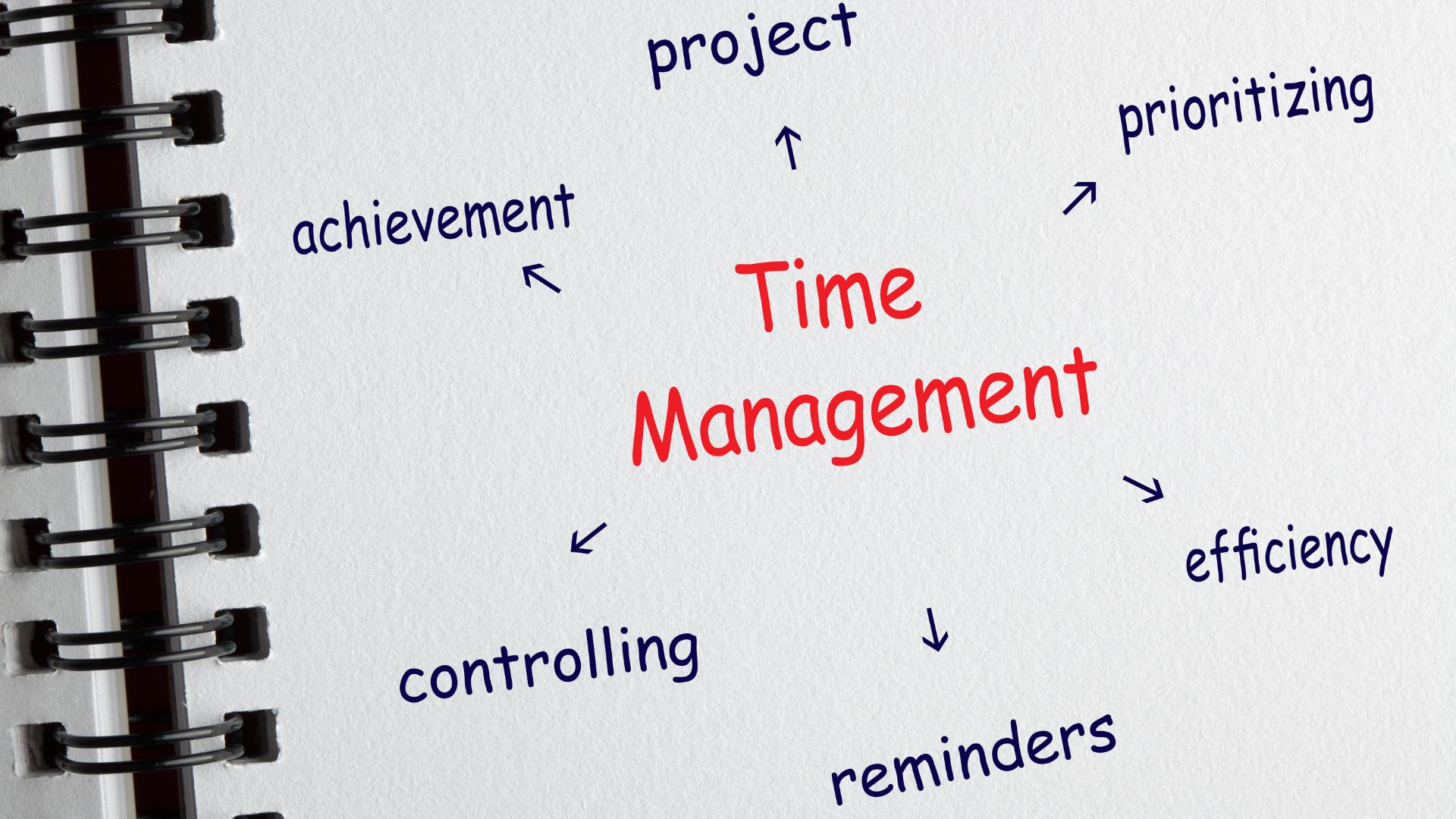
Unlock your potential with effective time management strategies that prioritize tasks using techniques like the Eisenhower Matrix, set SMART goals for clarity, employ time blocking to enhance efficiency, utilize the Pomodoro Technique for focused productivity, and leverage technology tools for streamlined organization. These strategies not only boost productivity but also contribute to a more balanced and fulfilling life, aligning with the BusinessProfit brand’s commitment to sophistication, knowledge, and professionalism. Start your journey to unlocking your true potential through smart time management today.
Understanding the Value of Time Management

Time management is not just about getting more done in less time; it’s about using your time effectively to accomplish your goals and lead a fulfilling life. When you manage your time well, you reduce stress, increase productivity, and gain a sense of control over your day. This can have a profound impact on your overall well-being and success.
The Link Between Effective Time Management and Success
Successful individuals and businesses share a common trait: they know how to manage their time effectively. Time management is often the differentiator between those who achieve their goals and those who struggle to keep up. By mastering the art of time management, you can position yourself for success in both your personal and professional life.
Setting the Stage for Transformation
Before we dive into specific time management techniques, it’s important to take a step back and assess your current time management habits. Understanding where you’re spending your time and identifying areas for improvement are crucial first steps on your journey to greater productivity and success.
Assessing Your Current Time Management
Identifying Time Wasters
One of the most common challenges in time management is dealing with time wasters. These are activities or habits that consume your time without providing meaningful results. Examples include excessive social media use, constant email checking, and unproductive meetings. Identifying and minimizing these time wasters is a critical step toward better time management.
The Importance of Self-Awareness
Self-awareness plays a pivotal role in effective time management. Understanding your natural rhythms and energy levels can help you schedule your most important tasks during your peak hours. It’s also essential to recognize your strengths and weaknesses when it comes to time management. Are you prone to procrastination? Do you struggle with setting boundaries? Self-awareness can guide you in addressing these challenges.
Analyzing Your Daily Routine
To make meaningful changes to your time management habits, you need to have a clear picture of how you’re currently spending your time. Take a few days to track your activities and create a time log. This will reveal patterns and areas where you can make improvements. Are you spending too much time on low-priority tasks? Are there opportunities to delegate certain responsibilities?
Time Management Techniques
Now that you have a better understanding of your current time management habits, let’s explore some effective techniques to help you optimize your use of time.
Prioritization: The Key to Productivity
Effective time management starts with prioritization. Not all tasks are created equal, and it’s essential to focus your energy on the most important and impactful activities. One popular method for prioritization is the Eisenhower Matrix.
The Eisenhower Matrix: A Tactical Approach
The Eisenhower Matrix, or Urgent-Important Matrix, is a straightforward and effective method for setting priorities. It categorizes tasks into four quadrants:
- Urgent and Important: These tasks require immediate attention and should be your top priority.
- Important but Not Urgent: These tasks are important for long-term goals and should be scheduled for later.
- Urgent but Not Important: These tasks may seem pressing but don’t contribute significantly to your goals. Delegate them if possible.
- Neither Urgent nor Important: These tasks are time-wasters and should be minimized or eliminated.
The Eisenhower Matrix is an effective method for establishing priorities and directing attention.
Setting SMART Goals
SMART goals are Specific, Measurable, Achievable, Relevant, and Time-bound. When you set SMART goals, you create a clear roadmap for your tasks. Using this strategy, you’ll be able to concentrate on your goals and maintain your drive.
Time Blocking: Maximizing Efficiency
Time blocking is a method of organizing one’s day so that different activities take up set chunks of time. By dedicating focused time to particular tasks, you can avoid multitasking and distractions. This method enhances your efficiency and ensures that essential tasks receive the attention they deserve.
The Pomodoro Technique: Harnessing Focus
One method for managing time is the Pomodoro Technique, in which one works without interruption for 25 minutes before taking a 5-minute break. Focus is improved, and burnout is avoided, with this method. It’s a great strategy for keeping up efficiency all day long.
Technology Tools for Time Management
Numerous digital tools and apps can assist you in managing your time effectively. These tools include calendar apps, task management software, and time tracking apps. Explore and leverage technology to streamline your time management efforts.
Implementing Time Management in the Workplace

The Impact on Business Profitability
Effective time management is a necessity in the workplace as well as in the individual’s life. Increased output and revenue can result from better time management practices in the workplace. Organizational cultures that value time management tend to be very productive.
Effective Delegation
Time management fundamentally involves delegating responsibilities, both personally and professionally. When you delegate tasks effectively, you have more time to focus on what really matters. In addition, it encourages everyone on the team to take charge.
Creating a Time-Optimized Work Environment
The physical and digital environments in which you work can significantly impact your time management. Organize your workspace for efficiency, reduce clutter, and eliminate distractions to create an environment conducive to productivity.
Strategies for Meetings and Email Management
Meetings and email can be major time sinks if not managed properly. Implement strategies such as setting clear agendas for meetings, keeping them concise, and establishing designated email-checking times to avoid constant interruptions.
Balancing Work and Personal Life
The Myth of Work-Life Balance
The concept of work-life balance has evolved over the years. It’s essential to recognize that balance doesn’t always mean an equal distribution of time between work and personal life. Instead, it’s about aligning your priorities and managing your time in a way that fulfills both professional and personal goals.
Creating Boundaries
Establishing boundaries is critical to maintaining a healthy work-life balance. Clearly define your work hours and personal time, and communicate these boundaries to colleagues, friends, and family. Setting boundaries helps prevent burnout and ensures you have time for self-care and leisure.
Time Management for Personal Goals and Well-Being
While we often associate time management with work, it’s equally important for achieving personal goals and well-being. Allocate time for hobbies, fitness, relaxation, and spending quality time with loved ones. A well-rounded approach to time management enhances your overall happiness and satisfaction.
Overcoming Time Management Challenges
Procrastination: The Enemy of Time
Procrastination is a common time management challenge that can derail your productivity. Stop putting things off by employing time management strategies like the Pomodoro Method to get things done.
Handling Interruptions and Distractions
In our digitally connected world, interruptions and distractions are constant. Implement strategies like turning off notifications, setting specific periods for focused work, and using noise-cancelling headphones to maintain concentration.
Building Consistency and Discipline
Consistency and discipline are the bedrocks of effective time management. Establishing daily routines and habits can help you build the discipline needed to stick to your time management strategies.
The Role of Stress Management
Stress can hinder your ability to manage time effectively. Incorporate stress management techniques like mindfulness, meditation, and exercise into your routine to stay calm and focused.
Tracking Progress and Adjusting Strategies

The Power of Data and Analytics
If you want to know if your time management tactics are effective, you need to keep track of your progress. Use data and analytics to measure your productivity and identify areas for improvement. Many time tracking apps provide valuable insights into how you’re spending your time.
Celebrating Achievements
Don’t forget to celebrate your time management achievements along the way. Recognizing your progress and accomplishments can motivate you to continue improving your time management skills.
Adapting to Changing Circumstances
Life is dynamic, and circumstances can change. Be flexible and willing to adjust your time management strategies as needed. What works during one phase of your life may need to be adapted for another.
Effective time management is the key to realizing your full potential and thriving in all aspects of your life. By understanding the value of time management, assessing your current habits, and implementing effective time management techniques, you can transform your daily routine and make the most of every moment. Remember that consistency, self-awareness, and adaptability are essential components of successful time management. So, embark on your journey to better time management today and watch as your productivity and fulfillment soar. Time is your most valuable asset; use it wisely to unlock your true potential.
